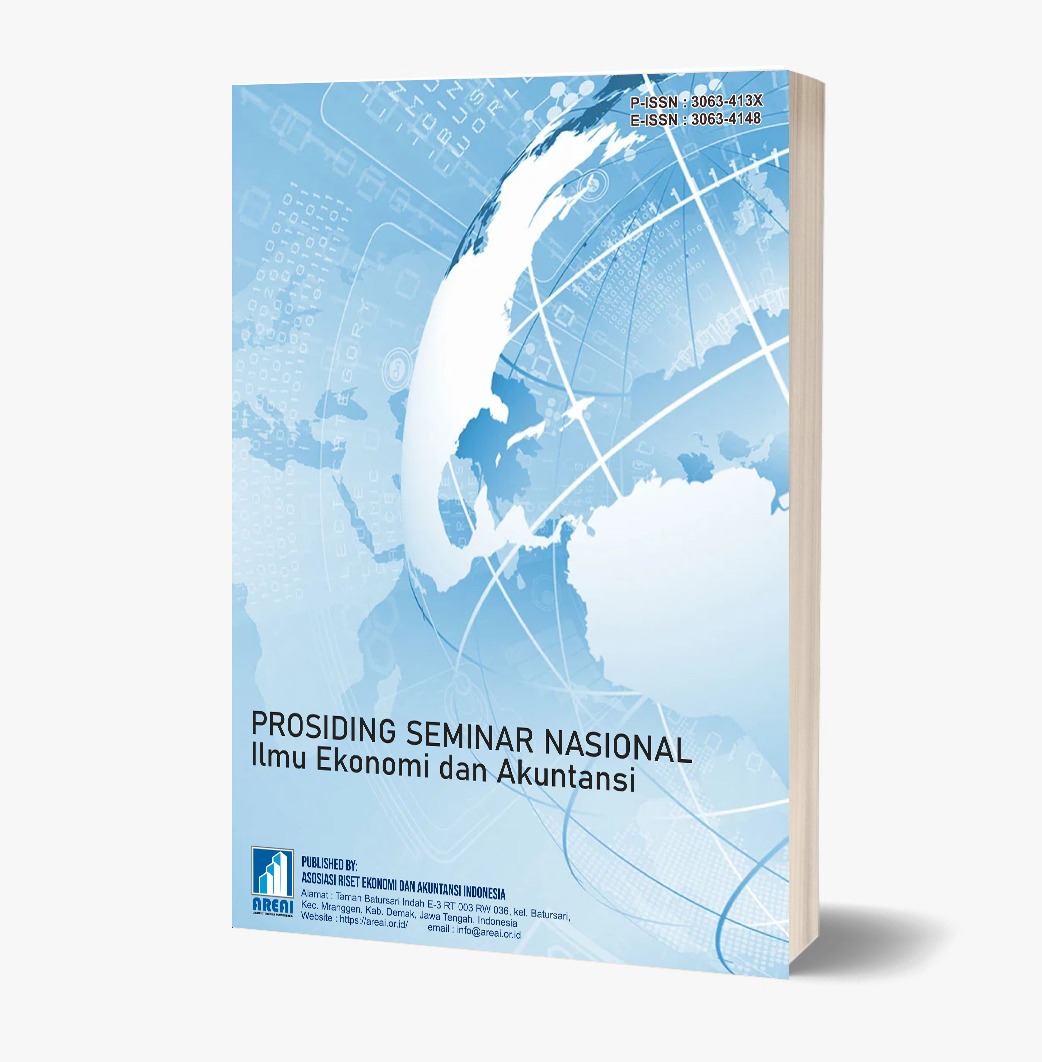Analysis Of The Role Of Alternative Financing In Sustainable Development
DOI:
https://doi.org/10.62951/prosemnasieda.v1i2.55Keywords:
alternative financing, crowdfunding, zakat, waqf, sustainable developmentAbstract
This study aims to analyze the role of crowdfunding, impact investing, zakat, and waqf as alternative financing in supporting sustainable development in Indonesia. The research method used is qualitative descriptive with a case study approach based on secondary data from literature and empirical reports. The results show that crowdfunding mobilizes community funds for environmental projects such as mangrove conservation in Kalimantan, significantly reducing carbon emissions. Impact investing supports strategic sectors like Islamic fintech and affordable housing, creating both social and financial impact. Zakat contributes to improved welfare through skills training and healthcare services, while waqf supports the development of sustainable social infrastructure. However, the management of zakat and waqf faces challenges in transparency and public participation. This study bridges the literature gap with empirical evidence highlighting the effectiveness of alternative financing in sustainable development. The conclusion emphasizes the need for a strategic integration of alternative financing to accelerate the achievement of sustainable development goals in an inclusive manner.
Downloads
References
Afxentiou, P., & Serletis, A. (2016). Growth and foreign indebtedness in developing countries: An empirical study using long-term cross-country data. International Review of Economics & Finance.
Aliyu, D. M. (2024). Trends and developments in contemporary zakat administration. Journal of Islamic Economics and Finance Studies, 5(1), 67-81. https://doi.org/10.47700/jiefes.v5i1.7952
Allen, F., Carletti, E., Qian, M., & Valenzuela, P. (2024). International comparison of alternative finance. In Handbook of alternative finance (pp. 283-302). Edward Elgar Publishing. https://doi.org/10.4337/9781800370494.00022
Antonio, S., Fernández-Portillo, L. A., Toscano-Valle, A., & Pérez-Velasco, E. (2023). Heterogeneity in financing for development strategies as a hindering factor to achieve a global agreement on the 2030 Agenda. Nature Communications, 10, 1-13. https://doi.org/10.1057/s41599-023-02342-1
Basikabio, M. P. (2023). Exploring alternative funding mechanisms: Driving innovation in the digital era. Preprints. https://doi.org/10.20944/preprints202311.0262.v1
Coldrey, O., Lant, P., & Ashworth, P. (2023). Elucidating finance gaps through the clean cooking value chain. Sustainability, 15(4), 3577. https://doi.org/10.3390/su15043577
Debrah, C., Darko, A. A. P., & Chan, A. (2022). A bibliometric-qualitative literature review of green finance gap and future research directions. Climate and Development, 15(5), 432-455. https://doi.org/10.1080/17565529.2022.2095331
Glenn, N. M., Yashadhana, A., Jaques, K., Belon, A. P., de Leeuw, E., Nykiforuk, C. I. J., & Harris, P. (2022). The generative mechanisms of financial strain and financial well-being: A critical realist analysis of ideology and difference. International Journal of Health Policy and Management, 12. https://doi.org/10.34172/ijhpm.2022.6930
Hasbulah, H. M., Nordin, N. A., Amjad, W. M., Halim, W. H., Izwan, M. K., Shahatha, A. F., Al-Mashhadani, M., & Noor, A. M. (2024). The contribution and potentiality of waqf in achieving the sustainable development goals in Malaysia. International Journal of Entrepreneurship and Management Practices, 7(25), 282-295. https://doi.org/10.35631/ijemp.725024
Heavens, A. I., Anaba, D. C., & Iheanyichukwu, U. T. (2024). Exploring sustainable finance mechanisms for green energy transition: A comprehensive review and analysis. International Journal of Applied Research in Social Sciences, 6(7), 1224-1247. https://doi.org/10.51594/ijarss.v6i7.1302
Islamic Development Bank. (2022). Innovations in Islamic Finance: Case Studies on Innovations in Islamic Finance.
Junaedi, J. (2024). Understanding the role of finance in sustainable development: A qualitative study on environmental, social, and governance (ESG) practices. Golden Ratio of Finance Management, 4(2), 113-130. https://doi.org/10.52970/grfm.v4i2.422
Millner, R., & Meyer, M. (2021). Collaborative governance in social impact bonds: Aligning interests within divergent accountabilities? Public Management Review, 1-23. https://doi.org/10.1080/14719037.2021.2000253
Nwokolo, S. C., Singh, R., Khan, S., Kumar, A., & Luthra, S. (2023). Remedies to the challenges of renewable energy deployment in Africa. In CSR, sustainability, ethics & governance (pp. 59-74). https://doi.org/10.1007/978-3-031-44514-9_3
Okpeke, P., Iyelolu, T. V. (2024). Green bonds and sustainable finance: Performance insights and future outlook. Open Access Research Journal of Science and Technology, 11(2), 064-073. https://doi.org/10.53022/oarjst.2024.11.2.0094
Park, J. (2022). How can we pay for it all? Understanding the global challenge of financing climate change and sustainable development solutions. Journal of Environmental Studies and Sciences, 12(1), 91–99. https://doi.org/10.1007/s13412-021-00715-z
Raji, (2024). Sustainable finance in action: Exploring green loans in promoting environmental responsibility. Kristu Jayanti Journal of Management Sciences, 14-25. https://doi.org/10.59176/kjms.v2i1.2348
Setiyowati, A., & Sya’ban, M. (2019). Profesionalisme Nazhir dalam pengelolaan wakaf uang: Belajar dari tata kelola wakaf uang di Bangladesh. Jurnal Balance, 16(2), 247–262. http://journal.um-surabaya.ac.id/index.php/balance/article/view/8184
Sohail, M., Haddad, H., Ullah, M., Al-Ramahi, N. M., Haron, N. F., & Alkhazaleh, A. M. (2024). Optimizing sustainable high-quality economic development through Green Finance with robust spatial estimation. Cogent Economics & Finance, 12(1). https://doi.org/10.1080/23322039.2024.2363466
Takkar, S., & Gupta, C. (2024). Analysis of impact investment for sustainable development in India. In Practice, progress, and proficiency in sustainability (pp. 1-25). https://doi.org/10.4018/979-8-3693-7322-4.ch001
Tok, E., Yesuf, A. J., & Mohamed, A. S. (2022). Sustainable Development Goals and Islamic Social Finance: From policy divide to policy coherence and convergence. Sustainability, 14(11), 6875. https://doi.org/10.3390/su14116875







